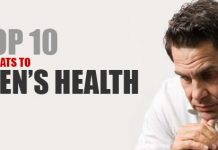You may be surprised by hearing the fact that an estimate of 1.5 billion people expected to have high blood pressure by 2025.
 This condition is normally uncontrollable. High blood pressure risk is greater in developed countries than under developed or developing countries.
This condition is normally uncontrollable. High blood pressure risk is greater in developed countries than under developed or developing countries.
The people in developed countries have 90% chance of getting the risk associated with high blood pressure.
If your blood pressure range exceeds 140/90 mm Hg when compared to normal level of about 120/80 mm Hg then you will have high blood pressure.
The first reading is the systolic pressure that occurs with each heartbeat and the second is the diastolic pressure, this is the pressure during resting stage between beats. Diastolic pressure is the most important one to consider for healthy body.
High blood pressure is most common in adults and 30 percent of Americans and 5 percent of children and adolescents have this problem. One in every four adults is already having the condition of hypertension. It is the silent killer because it shows fewer symptoms and is often undiagnosed.
Most of you believe that high blood pressure is a disease that can be cured and stop or reduce medications when blood pressure levels fall. It is the first and easily measurable irreversible sign that many organs in the body are under attack.
This enables you to think more carefully about the consequences of an unhealthy lifestyle and help to find preventive measures to make a happy life.
Once you will acquire your blood pressure to normal level, you can stop the medications. After that you need to consider low salt diet, weight loss, exercise and restriction on alcohol consumption. Some normotensive individuals can also consider antihypertensive medications and must adhere to the above mentioned conditions.
You can select initial drug treatment to deliver the most effective blood pressure lowering. For example, an individual who has the goal of acquiring the blood pressure 20 mm Hg or more need to consider two drug combinations because monotherapy is insufficient to treat your condition.
The individuals who have dangerous levels of high blood pressure should consider combination therapy for optimum blood pressure control. Along with this, you need to consider statin and low-dose aspirin.
It is very important to check your blood pressure levels regularly and you need to take your medications even after your blood pressure is under control. You need to fully aware of the important medications that you need to take.
Contributing factors for high blood pressure:
- Some lifestyle factors like physical inactivity and a salt-rich diet with highly processed and fatty foods, alcohol consumption and tobacco use can cause the increased risk of getting high blood pressure.
- Obesity, high cholesterol levels, diabetes and poor diet are also contributing factors for high blood pressure.
- Overeating is also a factor for high blood pressure.
Risk factors associated with high blood pressure:
Usually high blood pressure is associated with no symptoms; some people won’t diagnose the condition until something is serious.
- High blood pressure is the easily measurable sign that cause many organs in the body under attack.
- High blood pressure can cause greater risk for getting heart disease, kidney failure, stroke and it can also associate with obesity, diabetes, and high cholesterol levels.
- The individuals who are suffering with high blood pressure can experience an increase in the cardiovascular events within the normotensive range.
Lower levels of vitamin D can lead to high blood pressure:
According to recent studies, it is confirmed that those who have vitamin D deficiency have slightly higher blood pressure than those who have higher levels of vitamin D [More About Vitamin D].
Generally vitamin D refers to two things, one is cholecalciferol (D3) and the other is ergocalcifole (D2). Your body can make D3 when you are exposed to UVD radiation and D2 is obtained from dietary sources including fish, liver and egg yolk. This vitamin deficiency can cause many problems including metabolic syndrome.
Controlling high blood pressure:
People over 40 years of age should consult their GP and talk about having a full risk assessment for heart and circulatory disease.
- People with high blood pressure can control their condition by following regular physical activity, by reducing the amount of salt in your diet, by keeping your weight under control and properly taking the medications.
- Don’t take high-dose medications for long-term, because they can cause you to feel unwell.
- Eat a more balanced diet which includes more fresh fruits and vegetables. With this, your blood pressure will improve and as a result heart disease will fall down.
- By controlling high blood pressure you can decrease the risk of attaining strokes and attacks.
- Taking proper vitamin D supplements and exposure to sun rays may or may not improve the blood pressure. Some of the sources of vitamin D include: cod liver oil, salmon, sardines and mackerel, also in milk, cereal and orange juice.
Aerobic activity to reduce high blood pressure:
Aerobic activity can greatly help to reduce high blood pressure levels. A brisk walk, a fast run, or few laps in the pool are very useful to control blood pressure and they also help to keep you healthy.
Aerobic activity works for everyone who is having high blood pressure. The activities like walking, swimming, jumping rope, bicycling and jogging along with normal medications can help to maintain normal blood pressure levels. These activities mainly depend on depriving energy by consuming oxygen. Every exercise activity helps to reduce your blood pressure by 3-4 mm Hg.
Also practice static exercises which involve contraction of muscles. This results in moderate improvement in cardiac output, with small increase in the consumption of oxygen, for example weight lifting. These exercises are not recommended for patients with coronary heart disease.
Diet to control high blood pressure:
- Avoid sodium intake. Sodium makes your blood vessels to contract so the space for travelling of the blood will decrease. This condition creates an increase in the resistance of the blood. This is very difficult to overcome thus causing internal pressure to rise.
- Increase the intake of foods containing potassium. Eat foods like bananas, potatoes, and drink grapefruit and tomato juice.
- Limit the salt intake and avoid adding additional salt to foods.
- Use salt substitutes. Eat calcium and magnesium rich foods to help with high blood pressure.
- Decrease the intake of saturated fats.
With the above information, you can effectively manage high blood pressure.














